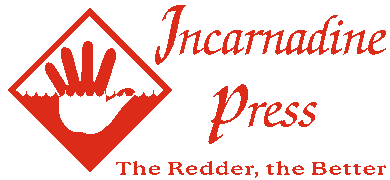Originally posted over on G+, but also here in case I want to refer back to it:
?+Epidiah Ravachol was speculating on why John Carter has not done so at the box office. The discussion has just crystalized my own ideas on the subject.
My own first reaction to the movie was “I really enjoyed this, but it’s too geeky for most people to like.” By “geeky” I mean that it has a high barrier of entry. It takes some work to wrap your head around it. It’s super-hard to get the broad movie-going public to identify with, and enjoy, a story set in a world that never has and never will exist. The three huge exceptions, that thread the needle, are Star Wars, The Lord of the Rings, and Avatar. Here’s why all of them have easier points of entry than John Carter.
CHARACTER: Luke Skywalker is presented as a farm boy with big dreams. People know what that is. Hobbits aren’t humans, but they are presented very much as a stand-in for human children. Jake Sully is a wounded warrior who wants to walk again. That “frustrated desire in the real world that is fulfilled in the fantasy world” is a big red carpet of identification.
John Carter is a Civil War officer. The Civil War is a hundred years deeper in history than it was in ERB’s day. In the movie version, he lost his wife and daughter, but we don’t know that until halfway through the movie. He’s harder for a 21st century audience to identify with.
SITUATION: Luke wants to go on an adventure against the Empire, that is very, very bad. Frodo has a big responsibility thrust upon him. If he doesn’t do it, no one will, and everyone will suffer. The big, faceless company is trying to steal the land from the Na’vi. Jake is the only one who can help them. Everyone’s dreamed of adventure, everyone’s had responsibilities thrust upon them. Everyone’s been screwed over by corporations.
John Carter is transported to a strange world where there are many different groups of people, all wanting different things. He wants to go home, even though his life at home sucks. I just don’t see much that resonates with common experience.
SETTING: Star Wars’ setting is not Earth, but Lucas’ greatest accomplishment is using visual cues to subtly communicate to the audience just what their expectations should be. “These guys where full face helmets and their officers look like Nazis. They’re evil.” “This place is filled with all kind of weird looking things you never imagined. It’s a seedy bar.” The setting is made visually digestible.
Middle Earth is also broken down into easily digestible chunks. Jackson gives us all those closeups of the ring, looming twenty feet tall on the screen, to show us how important it is. He spends lots and lots of time slowly introducing us to the more exotic elements of Middle Earth, like Moria and Mordor.
Avatar has the most accessible setting of them. It has Marines and corporate suits and scientists going native (with the same actress that played Jane Goodall!). The bizarre elements of Pandora are introduced slowly and one at a time.
Barsoom does not easily map to anything we already know. You can easily enough say that the Tharks are like Native Americans and Zodenga is the industrialized northern US, with Helium being the noble, aristocratic Confederacy. But you have to squint to see it, and there are no visual clues to tell us this. The red martians all dress like ancient Greek warriors with only a little strip of blue or red cloth to tell them apart. Stanton spent a lot of effort to make sure we knew who was a Thern in disguise, but not enough showing us who the bad guys were.
High barrier to entry on all three fronts = not many people are going to get over that barrier and enjoy the movie and recommend it to their friends.
